Related Research Articles

Joseph Cheshire Cotten Jr. was an American film, stage, radio and television actor. Cotten achieved prominence on Broadway, starring in the original stage productions of The Philadelphia Story and Sabrina Fair. He then gained worldwide fame in three Orson Welles films: Citizen Kane (1941), The Magnificent Ambersons (1942), and Journey into Fear (1943), for which Cotten was also credited with the screenplay.

George Orson Welles was an American director, actor, screenwriter and producer who is remembered for his innovative work in radio, theatre and film. He is considered to be among the greatest and most influential filmmakers of all time.

The Third Man is a 1949 British film noir directed by Carol Reed, written by Graham Greene and starring Joseph Cotten, Alida Valli, Orson Welles, and Trevor Howard. Set in postwar Vienna, the film centres on American Holly Martins (Cotten), who arrives in the city to accept a job with his friend Harry Lime (Welles), only to learn that Lime has died. Viewing his death as suspicious, Martins elects to stay in Vienna and investigate the matter.
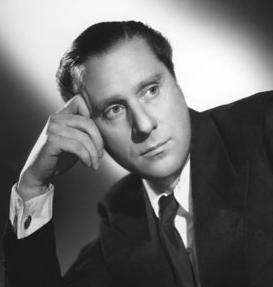
Sir Carol Reed was an English film director and producer, best known for Odd Man Out (1947), The Fallen Idol (1948), The Third Man (1949), and Oliver! (1968), for which he was awarded the Academy Award for Best Director.

Lights Out is an American old-time radio program devoted mostly to horror and the supernatural.
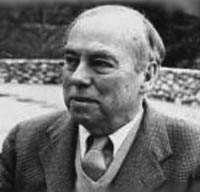
John Henry Noyes Collier was a British-born writer and screenwriter best known for his short stories, many of which appeared in The New Yorker from the 1930s to the 1950s. Most were collected in The John Collier Reader ; earlier collections include a 1951 volume, Fancies and Goodnights, which won the International Fantasy Award and remains in print. Individual stories are frequently anthologized in fantasy collections. John Collier's writing has been praised by authors such as Anthony Burgess, Ray Bradbury, Roald Dahl, Neil Gaiman, Michael Chabon, Wyndham Lewis, and Paul Theroux. He appears to have given few interviews in his life; those include conversations with biographer Betty Richardson, Tom Milne, and Max Wilk.

The Black Museum is a radio crime-drama program produced by Harry Alan Towers, which was broadcast in the USA on the Mutual network in 1952. It was then broadcast in Europe in 1953 on Radio Luxembourg, a commercial radio station, and was not broadcast by the BBC until 1991.

Around the World with Orson Welles is a series of six short travelogues originally written and directed by Orson Welles for Associated-Rediffusion in 1955, for Britain's then-new ITV channel. Despite its title emphasizing the world, it was entirely filmed in Europe. Among other incidents in the episodes, Welles visited Jean Cocteau and Juliette Gréco in Paris, attended a bullfight in Madrid and visited the Basque Country.
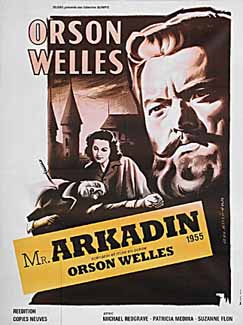
Mr. Arkadin, known in Britain as Confidential Report, is a French-Spanish-Swiss coproduction film, written and directed by Orson Welles and shot in several Spanish locations, including Costa Brava, Segovia, Valladolid and Madrid. Filming took place throughout Europe in 1954, and scenes shot outside Spain include locations in London, Munich, Paris, the French Riviera and at the Château de Chillon in Switzerland.
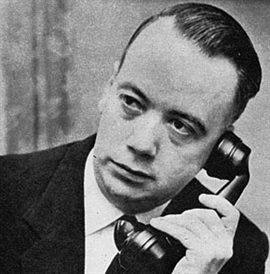
Harry Alan Towers was a British radio and independent film producer and screenwriter. He wrote numerous screenplays for the films he produced, often under the pseudonym Peter Welbeck. He produced over 80 feature films and continued to write and produce well into his eighties. Towers was married to the actress Maria Rohm, who appeared in many of his films.

The Adventures of Ellery Queen is the title of a radio series and four separate television series made from the 1950s through the 1970s. They were based on the fictional detective and pseudonymous writer Ellery Queen and the cases he solved with his father, Inspector Richard Queen.
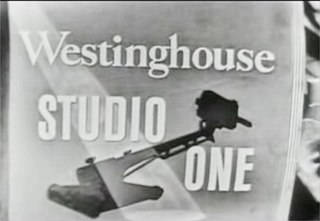
Studio One is an American anthology drama television series that was adapted from a radio series. It was created in 1947 by Canadian director Fletcher Markle, who came to CBS from the CBC. It premiered on November 7, 1948 and ended on September 29, 1958, with a total of 467 episodes over the course of 10 seasons.

Treasure Island is a 1972 adventure film, based on the 1883 novel by Robert Louis Stevenson. The film stars Orson Welles as Long John Silver, Kim Burfield as Jim Hawkins, Walter Slezak as Squire Trelawney, Rik Battaglia as Captain Smollett, and Ángel del Pozo as Doctor Livesey.
"The Third Man Theme" is an instrumental written and performed by Anton Karas for the soundtrack to the 1949 film The Third Man.
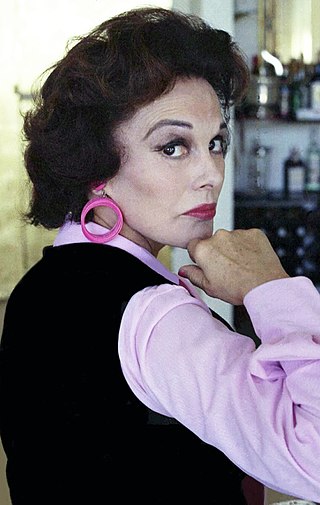
Patricia Paz Maria Medina was a British actress. She is perhaps best known for her roles in the films Phantom of the Rue Morgue (1954) and Mr. Arkadin (1955).
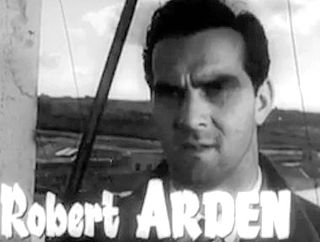
Robert Arden was an English film, television and radio actor born in London who worked and lived mostly in the United Kingdom.

Orson Welles Great Mysteries is a British television series originally transmitted between 1973 and 1974, produced by Anglia Television for the ITV network.

This is a comprehensive listing of the radio programs made by Orson Welles. Welles was often uncredited for his work, particularly in the years 1934–1937, and he apparently kept no record of his broadcasts.
Radio is what I love most of all. The wonderful excitement of what could happen in live radio, when everything that could go wrong did go wrong. I was making a couple of thousand a week, scampering in ambulances from studio to studio, and committing much of what I made to support the Mercury. I wouldn't want to return to those frenetic 20-hour working day years, but I miss them because they are so irredeemably gone.
This is a bibliography of books by or about the director and actor Orson Welles.

Der Frosch mit der Maske, aka Face of the Frog, is a 1959 West German-Danish black-and-white crime film directed by Harald Reinl and starring Siegfried Lowitz and Joachim Fuchsberger. It was the first of a very successful series of films based on works by Edgar Wallace produced by Rialto Film in West Germany. This film was adapted from the 1925 novel The Fellowship of the Frog.
References
- ↑ "Harry Alan Towers: Film, TV and radio producer and scriptwriter who rose from adapting the Fu Manchu novels to making Cry, the Beloved Country". The Times , August 5, 2009
- ↑ Harry Alan Towers interview, Man of Mystery bonus featurette on Criterion DVD of Mr. Arkadin (2006)
- ↑ Orson Welles and Others, The Lives of Harry Lime (Pocket Books, London, 1952) contents page
- ↑ Robert Arden interview, Men of Mystery, Documentary on the making of Mr. Arkadin (2006) - DVD extra on the Criterion edition